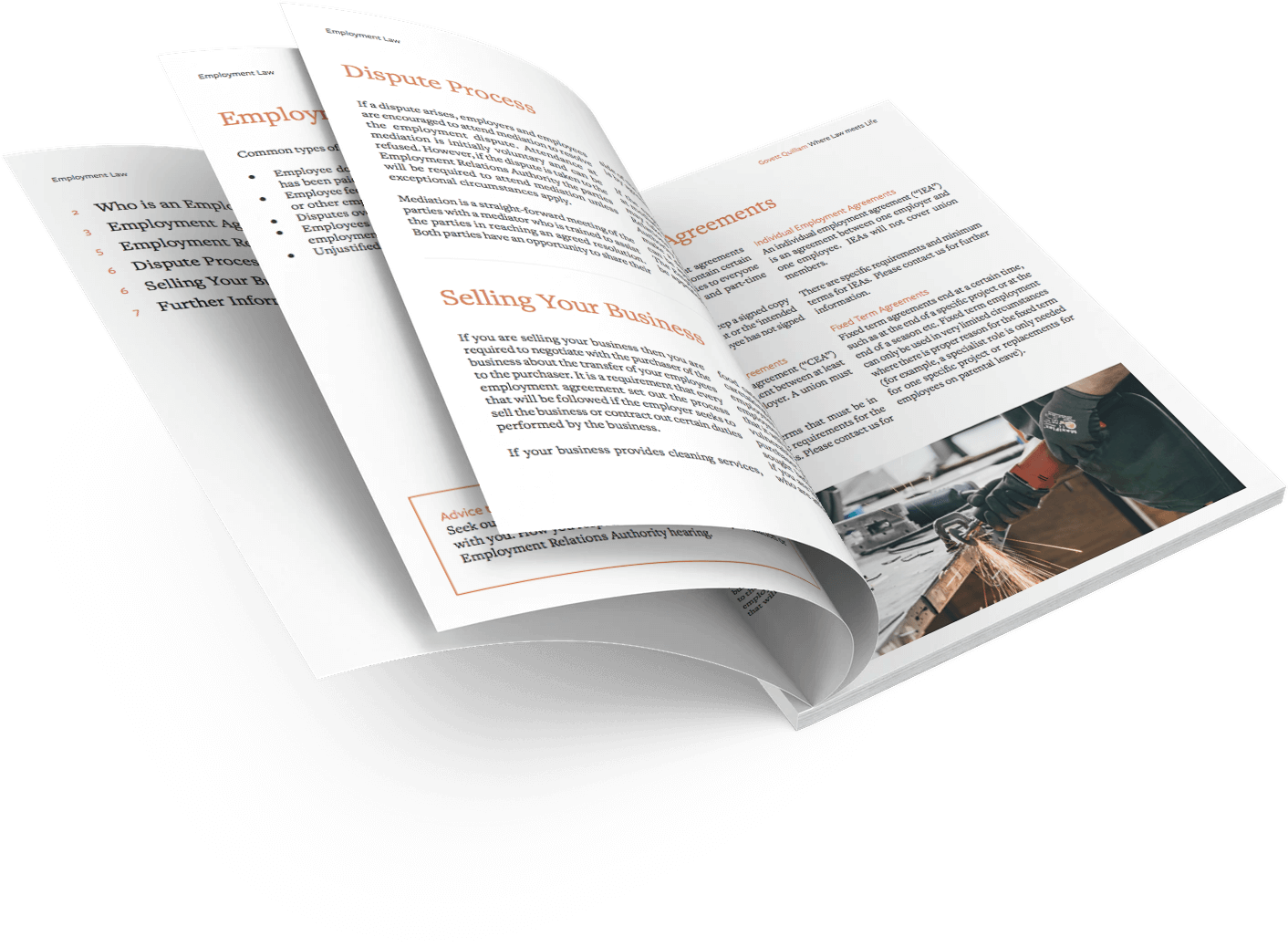One could argue that, in substance, little has changed to our labour laws in the handover between our current coalition government and the previous Labour government.
Many words have been spoken from representatives from both sides of that divide these last six or more years, but, arguably, little of importance has occurred.
That is likely an over-simplification – yes, Fair Pay Agreements came, then went, the swinging pendulum that is trial periods has swung once more, and a host of other amendments to legislation and minimum entitlements has occurred – but interestingly, the contractor/employee battle has been largely played out in the Courts. This is despite both Labour and the coalition government (or at least certain individuals within those groups), voicing strong philosophical views about the legal rights and wrongs of, in particular, the increasing use of contractors.
Clearly what has changed this last half-decade is the workplace environment. Uber, Delivereasy and a host of other online platforms have introduced new jobs to the market while challenging some existing industries. Technology and associated disruptors have brought a new way of working, but by using some already existing work practices. Contracting arrangements are not new, but within existing labour laws, they seemingly fit just nicely.
However, that is not necessarily the way Courts here and abroad have seen it.
Contractors vs Employees
A contractor, or ‘independent contractor’ is a self-employed individual engaged by another party to perform services under an agreed upon rate. Contractors generally invoice for their time and pay their own tax and ACC levies. They can be ‘their own boss’, have more control and flexibility over their time, work and income than an employee, but forfeit minimum entitlements such as annual leave and sick leave.
An employee on the other hand is employed under an employment agreement in exchange for a wage or salary. They reap all the security and benefits of employment law rights including leave entitlements, minimum wage and the right to take a personal grievance (and are consequently said to have greater job security).
So what's the problem?
In an idealised world this is simply a choice (for workers) between flexibility and certainty, the right to be your own boss, against the right to have minimum standards in the workplace.
The Courts, however, view the issue to be more complex, and consider that often the choices workers are able to make are “largely illusory” rather than real.
In E TŪ INCORPORATED v RASIER OPERATIONS BV [2022] NZEmpC 192, four drivers, working under contractor arrangements, successfully argued that the control exercised by Uber was more properly associated with an employment arrangement. Generally, the Courts will consider the level of control exerted by the principal of its worker, and the real nature of the relationship (such that, for example, the fact the parties may have entered a contractor agreement may not be determinative). The Courts often focus on whether there is an inequality in bargaining power, between, as in this case, a global corporate giant such as Uber, and its drivers. The Employment Court case was appealed and recently heard in the Court of Appeal (with a decision pending) and followed on from a similar result in the UK Supreme Court in 2021.

In THE ATHLETES’ COOPERATIVE INCORPORATED v HIGH PERFORMANCE SPORT NEW ZEALAND LIMITED [2024] NZERA 43, it was found that High Performance Sport New Zealand (HPSNZ) was obligated to engage in good-faith collective bargaining with The Athletes Cooperative Incorporated, despite HPSNZ's strong contention that these were contracting athletes, not employees. While this decision is expected to be appealed, it has once again questioned the appropriate way in which parties seek to formalise their working relationship.
Outside of the Courts, contractor arrangements continue. As one recent example, New Zealand Post announced plans to lay off 700 postal workers over the next five years, to be replaced with contractor courier drivers.
The political response
Labour sought to protect contractors when it set up a tripartite working party. The group recommended in 2021 that, amongst other matters, there be greater legislative clarity of the distinction between employee and contractor relationships. The group voiced concerns that certain contracting relationships had become "normalised” and that individual workers were often powerless to challenge that practice.
The Act party took a different view, campaigning during the last election on the premise that the Courts had become “increasingly unpredictable and tends to rule in the favour of contractors seeking to be classed as employees”. Act's current Minister of Internal Affairs and Workplace Relations and Safety, Brooke van Velden recently flagged that there would be an amendment to the Employment Relations Act so that “contractors who have explicitly signed up for a contracting arrangement can’t challenge their employment status in the Employment Court”.
While the specific details of the proposed legislative amendments are yet to be announced, it is evident that this contract-first approach is a marked departure from that of the coalition government's predecessor, and, importantly, current Court precedent.
Where to from here?
There is no doubt (in my experience) that contractor arrangements suit some workers. The flexibility afforded some contractors (in terms of how, when and where they work) clearly has its advantages. It likely suits therefore the increasing numbers of people seeking a greater work/life balance. The question that remains however, is that of choice, specifically whether the arrangement is one of an actual choice, or of commercial convenience. This current coalition government, and the Courts, will likely have something further to say about this.





.jpg?width=244&height=325&name=Troy%20HubDB%20(1).jpg)


.png)

